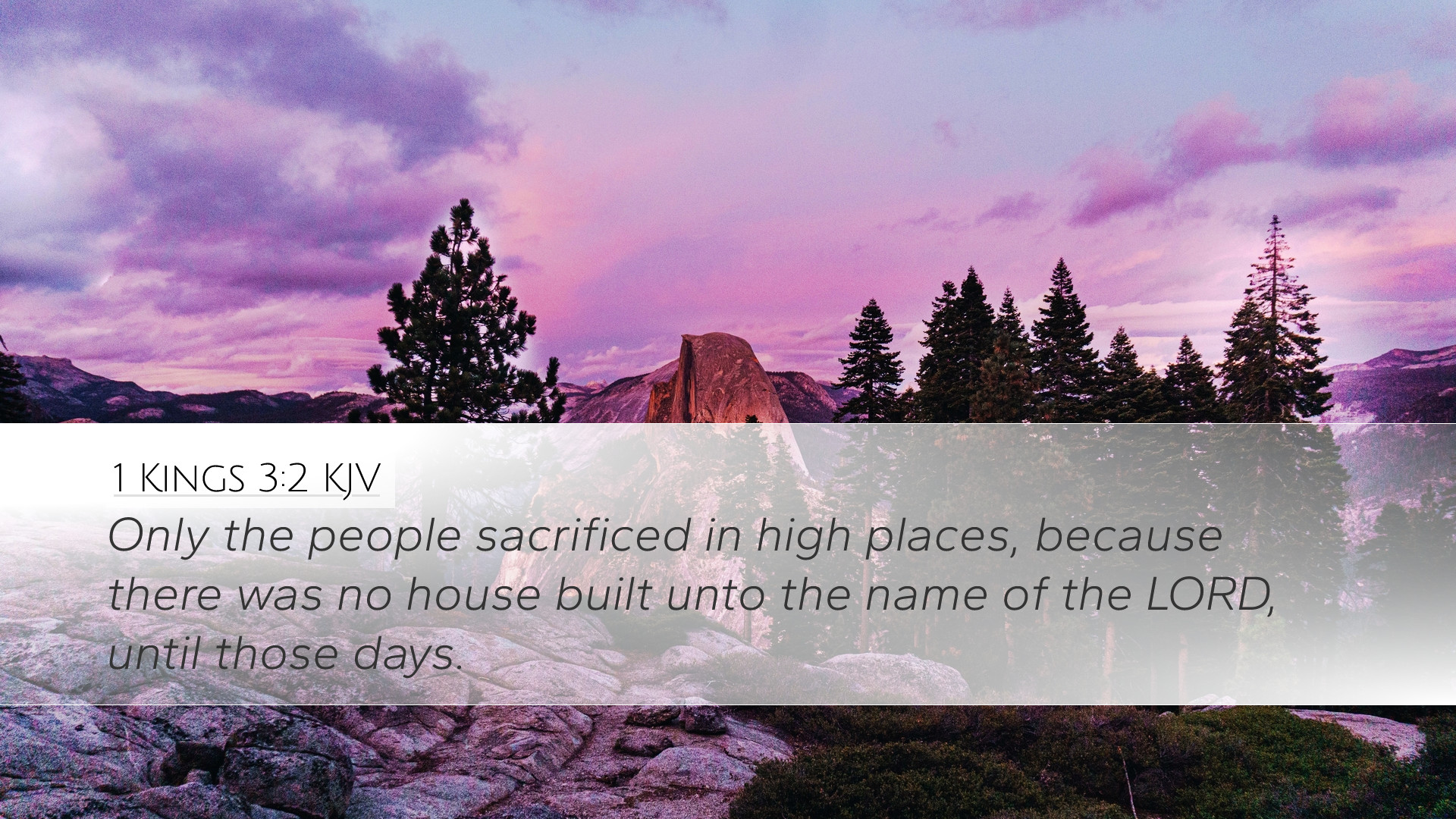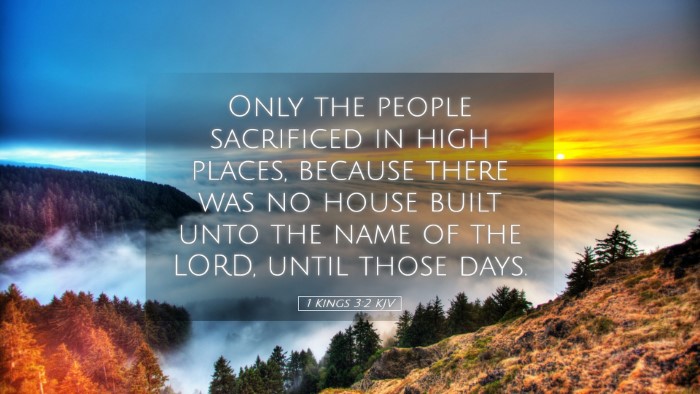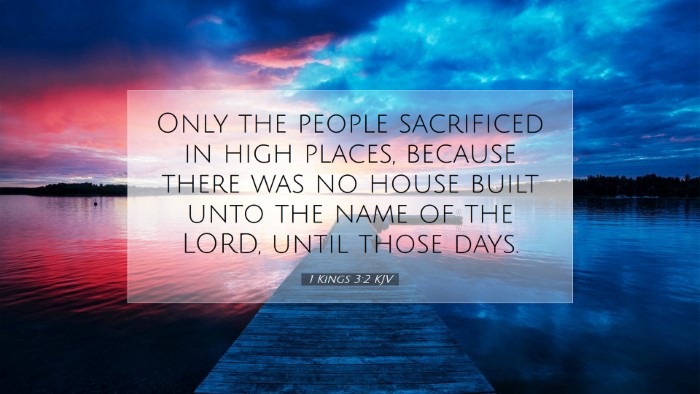Commentary on 1 Kings 3:2
Verse Overview: 1 Kings 3:2 states: "And the people sacrificed in high places, because there was no house built unto the name of the LORD, until those days." This verse introduces a pivotal moment in Israel's history under King Solomon, highlighting the religious practices of the Israelites as they transition from the Tabernacle worship to a more established form of worship with the building of the Temple.
Contextual Background
The historical setting of this verse is significant. Following the reign of David, Solomon ascended to the throne amid a period of relative peace and prosperity. The people of Israel were eager to establish a place of worship that reflected their devotion to God and their national identity.
High Places and Their Importance
The mention of "high places" is crucial in understanding the state of worship during this period. High places refer to elevated sites where people carried out their religious practices, which were common in ancient Near Eastern cultures.
- Matthew Henry's Insight: Henry emphasizes that the "high places" served as locations for sacrifices and worship before the establishment of the Temple. He warns, however, that many of these high places were associated with idolatrous practices.
- Albert Barnes' Analysis: Barnes notes that although these high places were used for the worship of Yahweh, they often became sites where syncretism took place, leading to the dilution of true worship.
- Adam Clarke's Commentary: Clarke points out the irony of the people's sacrifice in high places: while they sought to honor God, their actions reflected a lack of understanding of His prescribed methods for worship.
Religious Significance
The actions of the Israelites during this time reflect deeper spiritual truths. The sacrifices in high places were a sign of the people's desire to connect with God despite the absence of a permanent Temple. Yet, this also illustrates a disconnect between divine instructions and human practices.
Theological Implications
The commentary from various theologians provides a rich exploration of the theology surrounding worship, divine presence, and community commitment:
- Matthew Henry: He discusses how God allows for flexibility in worship while longing for obedience. The inclination to worship is good, but true worship must align with God's commands.
- Albert Barnes: Barnes contemplates the notion of a centralized form of worship, noting that the future establishment of the Temple will address the disunity created by the scattering of worship sites.
- Adam Clarke: Clarke elaborates on the implications of having "no house built unto the name of the LORD," viewing it as a yearning for restoration and proper reverence towards God.
Practical Applications for Today
As ministers, theologians, and lay Christians engage with this passage, several applications can be drawn:
- Seek Authentic Worship: Reflection on the dangers of high places urges contemporary believers to evaluate their worship practices, avoiding the temptation to blend cultural practices with biblical mandates.
- Build a Firm Foundation: The necessity of a central place of worship symbolizes the importance of building deep theological understanding and community practices grounded in Scripture.
- Embrace God’s Presence: Just as the Israelites yearned for a physical place of worship, modern believers should focus on cultivating an awareness of God’s presence in every aspect of life.
Conclusion
1 Kings 3:2 serves as a reminder of the complexity of worship. It challenges the church today to consider the significance of where and how they practice their faith. The insights provided by commentaries emphasize that while the act of worship is sacred, it is the intent and method of that worship that must align with God's divine design.


